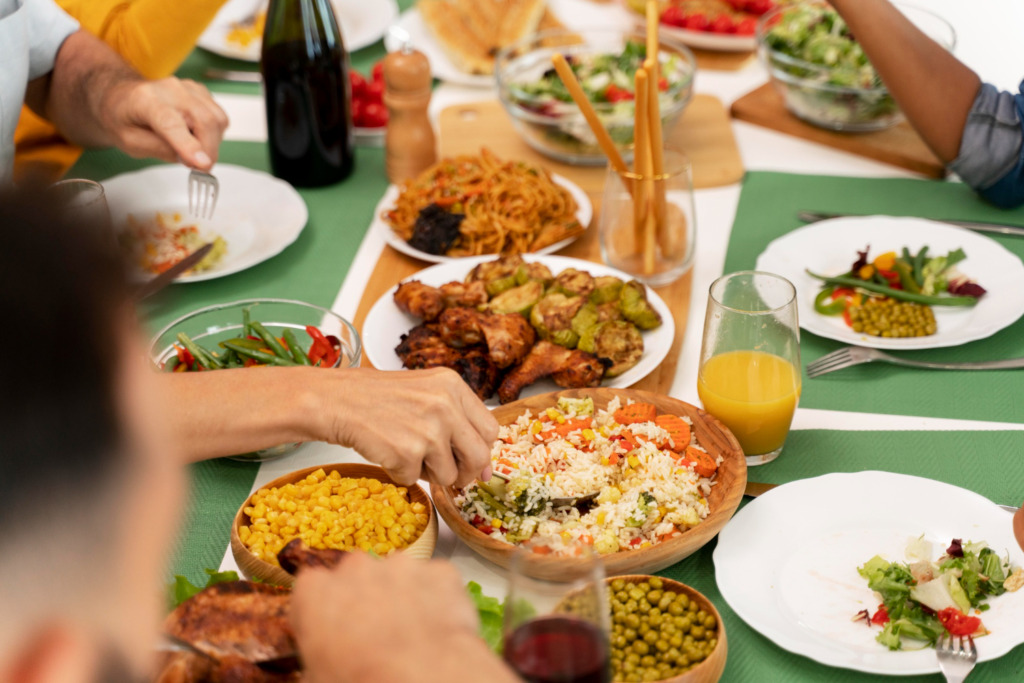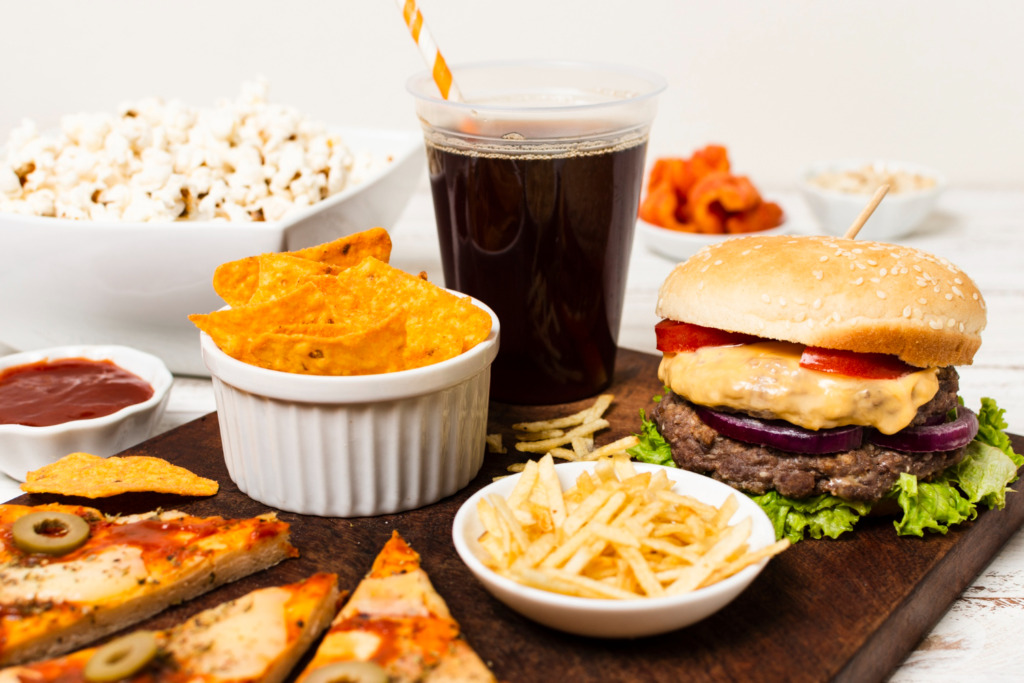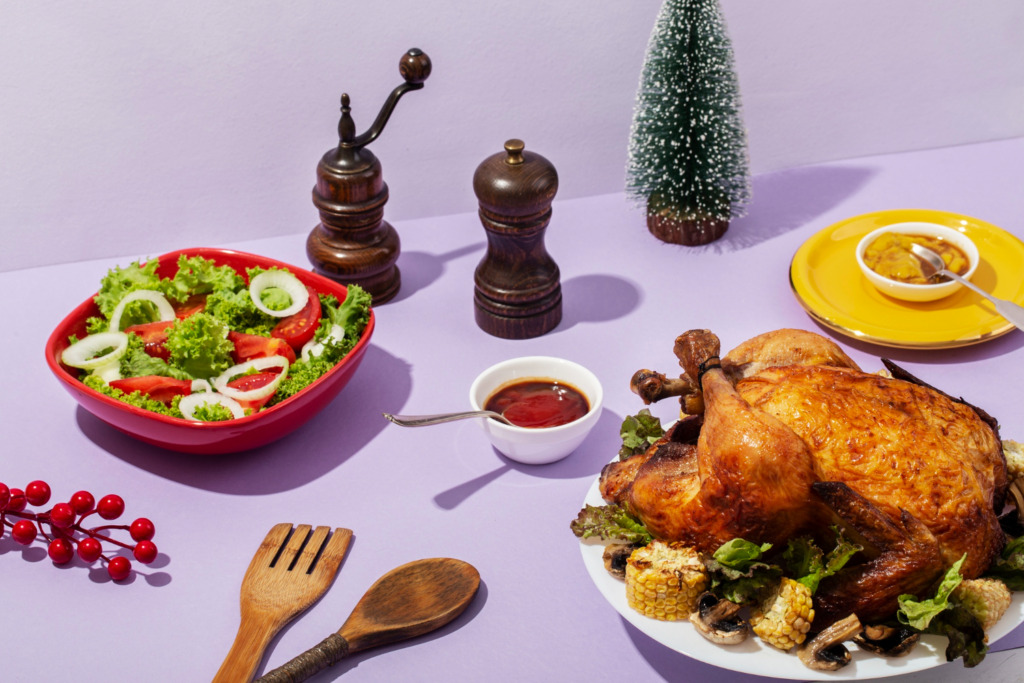Foods to avoid cholesterol spike during the holidays is a topic that most people ask especially seasons like christmass. The holidays are a time of happiness and celebration, frequently marked by decadent meals and alluring sweets. But even though we’re celebrating, we still need to be careful about what we eat, especially when it comes to cholesterol. Maintaining a healthy lifestyle can be greatly aided by being aware of how certain foods affect cholesterol spikes during these periods. This is a thorough guide on how to enjoy the holidays without raising your cholesterol.
Introduction
While the holidays bring joy to many, they can also have a negative impact on your heart health. Studies show that bad cholesterol levels spike by nearly 20% during this time of year. “People tend to eat a bit more around the holidays and drink more alcohol as they start to feel the festive spirit,” Dr. Norman Lepor, a cardiologist at Cedars Sinai in Beverly Hills, California, told Healthline. “This combination of overindulging in unhealthy food and drinks and feeling stressed due to the hectic schedule of shopping, traveling, attending parties, and other activities may leave less time for mindful eating and exercising. The heart may suffer as a result of all of this.
December 25, 26, and January 1 are the three days of the year with the highest number of heart attacks. Our tables are laden with delicious, flavor-filled, but occasionally high-cholesterol meals during the holidays. It is possible to enjoy the festive treats without raising blood pressure with awareness and careful planning.

Understanding Cholesterol And Its Impact
What Is Cholesterol?
Cholesterol is a fatty substance vital for various bodily functions but can be detrimental in excess. It is of two types: low-density lipoprotein (LDL) and high-density lipoprotein (HDL). While HDL is beneficial, excess LDL can clog arteries, leading to health complications.
Types Of Cholesterol
It’s critical to comprehend the differences between LDL and HDL cholesterol. Although HDL is referred to as “good” cholesterol and helps to eliminate LDL from the bloodstream, LDL is frequently referred to as “bad” cholesterol.
Impact On Health
High cholesterol can cause serious health problems, including heart attacks and strokes. Thus, controlling cholesterol becomes essential, particularly during the holidays and other indulgent periods.
Factors Contributing To Cholesterol Spikes
Elevations in cholesterol can be caused by a variety of factors, such as genetic predispositions, dietary habits, and lifestyle decisions. These elements may intensify during celebratory times, resulting in an increase in cholesterol.
Dietary Habits
Eating foods high in trans fats, saturated fats, and animal products high in cholesterol can raise cholesterol levels considerably. Favorites from the holidays, such as fried appetizers, creamy desserts, and fatty meats, can be dangerous.
Lifestyle Factors
Holiday sleep patterns, elevated stress levels, and sedentary lifestyles can all affect cholesterol levels. High levels of stress and inactivity are two factors that lead to cholesterol imbalances.
Genetic Predisposition
Because some people may be genetically predisposed to having higher cholesterol, it’s important to watch what you eat and how you live during celebrations.

Foods To Avoid Cholesterol Spike During The Holidays
Saturated Fats And Trans Fats
Foods high in trans and saturated fats, like deep-fried snacks, buttery pastries, and some red meat cuts, can raise LDL cholesterol levels considerably. These decadent holiday confections may be partly responsible for an unexpected rise in cholesterol.
Processed And Fried Foods
A variety of processed and fried foods, such as pre-made meals, fried appetizers, and packaged snacks, are frequently found on holiday spreads. These frequently include additives and unhealthy fats, which raise cholesterol levels.
High-Cholesterol Animal Products
Overindulging in animal products high in cholesterol, such as organ meats, egg yolks, and full-fat dairy products, can increase LDL cholesterol levels and negatively affect cardiovascular health in general.
Strategies For Avoiding Cholesterol Spikes
During the holidays, eating mindfully can help you enjoy the season without putting your cholesterol at risk.
Healthy Holiday Eating Tips
Instead of frying, use healthier cooking techniques like grilling, baking, or steaming. Select lean meats, add more fruits and vegetables to recipes, and use less unhealthy fats and added sugars.
Alternative Ingredients For Traditional Dishes
Replace unhealthy ingredients with healthier alternatives in classic recipes, like Greek yogurt for sour cream or olive oil for butter. With these changes, the cholesterol content can be significantly reduced without sacrificing flavor.
Cooking Methods And Recipes
Discover recipes and healthier cooking methods designed to control cholesterol levels. Accept aromatic herbs and spices to improve the flavor of food without depending on added fats or salt.
Exercise And Its Role In Managing Cholesterol
Even around Christmas, physical activity is essential for controlling cholesterol levels.
Importance Of Physical Activity
Frequent exercise increases HDL cholesterol, or the “good” cholesterol, and helps with weight management. Even during the holidays, exercise can counteract the effects of overindulgent eating.
Exercise Routines During Holidays
Include easy workouts in your daily schedule, such as quick walks following meals, dancing at parties, or organizing outdoor activities with loved ones. Exercise can be incorporated into holiday traditions in a way that makes it more enjoyable.
Stress Management And Cholesterol Levels
Although the holidays are usually a time of joy, they can also be stressful and raise cholesterol.
Link Between Stress And Cholesterol
The body releases hormones in response to stress, which can raise cholesterol levels. Maintaining ideal cholesterol levels requires learning practical stress-reduction strategies.
Stress Reduction Techniques
To reduce stress, try yoga, deep breathing techniques, or mindfulness. Make self-care a priority and set aside time for leisure activities that enhance mental health and relaxation during the holiday season.
Monitoring Cholesterol Levels
It’s critical to regularly check cholesterol levels, particularly during periods of increased indulgence.
Importance Of Regular Check-Ups
Make an appointment for routine medical check-ups to keep an eye on your cholesterol levels. Early detection and the required interventions to maintain optimal health are made possible by this proactive approach.
Understanding Cholesterol Readings
Knowing what cholesterol readings mean, including LDL, HDL, and triglyceride levels, gives people the power to choose their food and lifestyle choices with knowledge.

Foods That Help Lower Cholesterol
Holiday meals can be balanced by including foods that reduce cholesterol in place of decadent desserts.
Incorporating Cholesterol-Lowering Foods
To help lower LDL cholesterol levels, include foods high in soluble fiber, such as nuts, legumes, and oats, as well as omega-3 fatty acids, which are found in fatty fish. A diet rich in fruits, vegetables, and whole grains is also beneficial to heart health.
Benefits Of A Balanced Diet
In addition to helping to control cholesterol, a balanced diet rich in these foods lowers blood pressure and improves cardiovascular health.
Creating A Holiday Meal Plan
Organizing wholesome and well-rounded holiday meal plans is essential to preserving optimal cholesterol levels.
Planning Healthy Menus
Arrange meals that highlight fruits, vegetables, lean proteins, whole grains, and other nutrient-dense foods. Create menus that prioritize health and please the palate.
Sample Meal Ideas
Examine inventive and healthful substitutes for customary holiday fare. To make festive yet nutrient-dense meals, try roasting veggies, grilling lean meats, or serving fruit for dessert.
The Impact Of Alcohol And Cholesterol
Drinking alcohol in moderation is important because it can affect cholesterol levels.
Moderation And Its Significance
Drinking too much alcohol can increase triglyceride levels, which can affect the balance of cholesterol in the body. Drink in moderation and select healthier beverages, such as red wine, in moderation.
Healthy Drink Alternatives
For a guilt-free way to celebrate, try mocktails or non-alcoholic drinks made with fresh juices, sparkling water, or herbal teas with added sugar.
Social Support And Healthy Choices
Promoting healthy behaviors in social contexts is advantageous for the general welfare of the population.
Encouraging Healthy Habits In Gatherings
Share recipes that are low in cholesterol or choose potluck themes that highlight healthier options. Establish a welcoming atmosphere to promote mindful eating when celebrating.
Peer Influence On Food Choices
Encourage one another to make wholesome decisions. Peer support creates an environment that is favorable for sustaining healthy behaviors when people get together for the holidays.
Educational Resources And Further Support
Having access to trustworthy resources and expert advice improves attempts to control cholesterol.
Online Sources And Communities
Examine reliable websites that offer advice on controlling cholesterol. Participate in online forums that provide advice, recipes, and encouragement for leading a heart-healthy lifestyle.
Professional Assistance
Seek individual advice from medical professionals, dietitians, or nutritionists regarding cholesterol control and creating appropriate holiday meal plans.
Maintaining Healthy Habits Beyond The Holidays
Making the shift from seasonal indulgences to regular, healthful habits is critical to long-term wellbeing.
Incorporating Changes Into Everyday Life
Make regular exercise and healthier eating habits a part of your everyday routine even after the holidays. Sustainable small changes result in long-term health benefits.
Long-Term Strategies For Managing Cholesterol
Make a commitment to a healthy diet, consistent exercise, stress reduction, and yearly checkups to keep your cholesterol levels at their ideal levels.
Conclusion
To avoid causing spikes in cholesterol during the holidays, one must practice mindfulness, strategic planning, and health-focused attention to detail. One can enjoy the holiday season without sacrificing cardiovascular health by making healthier food choices, exercising frequently, managing stress, and getting professional help.
FAQs
Are Fats In General Bad For Cholesterol?
Not every fat is bad for you. Healthy fats, such as those in nuts, seeds, avocados, and olive oil, can actually lower cholesterol by promoting heart health and HDL (good) cholesterol. Limiting saturated and trans fats—which are frequently present in processed and fried foods—is essential because they can increase LDL (bad) cholesterol.
Can I Occasionally Indulge In Holiday Treats Without Raising My Cholesterol?
It makes sense to occasionally indulge in treats in moderation. Balance and moderation are crucial. Lowering your cholesterol can be achieved by eating a healthier diet overall and controlling your portion sizes when indulging in holiday foods.
What Kind Of Exercise Regimen Is Best For Controlling Cholesterol?
There’s no one-size-fits-all workout plan. On the other hand, controlling cholesterol levels may benefit from a combination of strength training and aerobic exercises (like brisk walking, swimming, or cycling). Try to get in at least 150 minutes a week of moderate-to-intense exercise.
How Quickly Can Alterations In Lifestyle Affect Cholesterol Levels?
Within weeks to months, dietary adjustments and physical activity can have a positive impact on cholesterol levels through lifestyle modifications. The degree of change, however, varies depending on personal factors like heredity, present health, and compliance with lifestyle modifications.
Are There Any Natural Cholesterol-Lowering Supplements Available?
A number of supplements, including psyllium, fish oil, and plant sterols, make this claim to help lower cholesterol. But as their efficacy may differ, it is crucial to speak with a healthcare provider before taking any supplements. Making changes to one’s lifestyle is still the key to controlling cholesterol.
It is possible to maintain a healthy balance over the holidays by making thoughtful decisions, exercising moderation, and being aware of how our lifestyle affects cholesterol levels. We can celebrate without sacrificing our health if we make educated choices and include healthier options in our celebrations.



